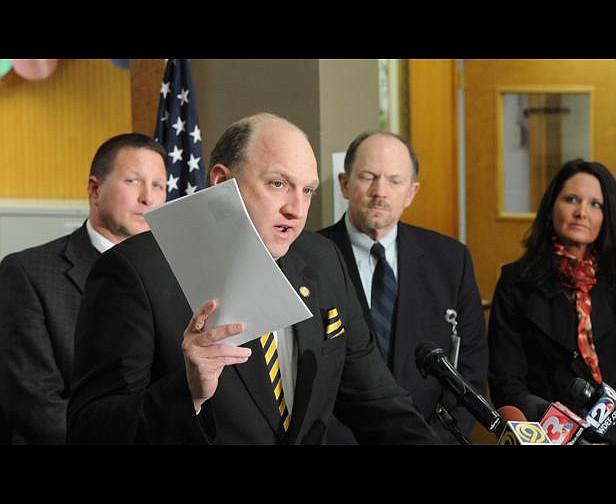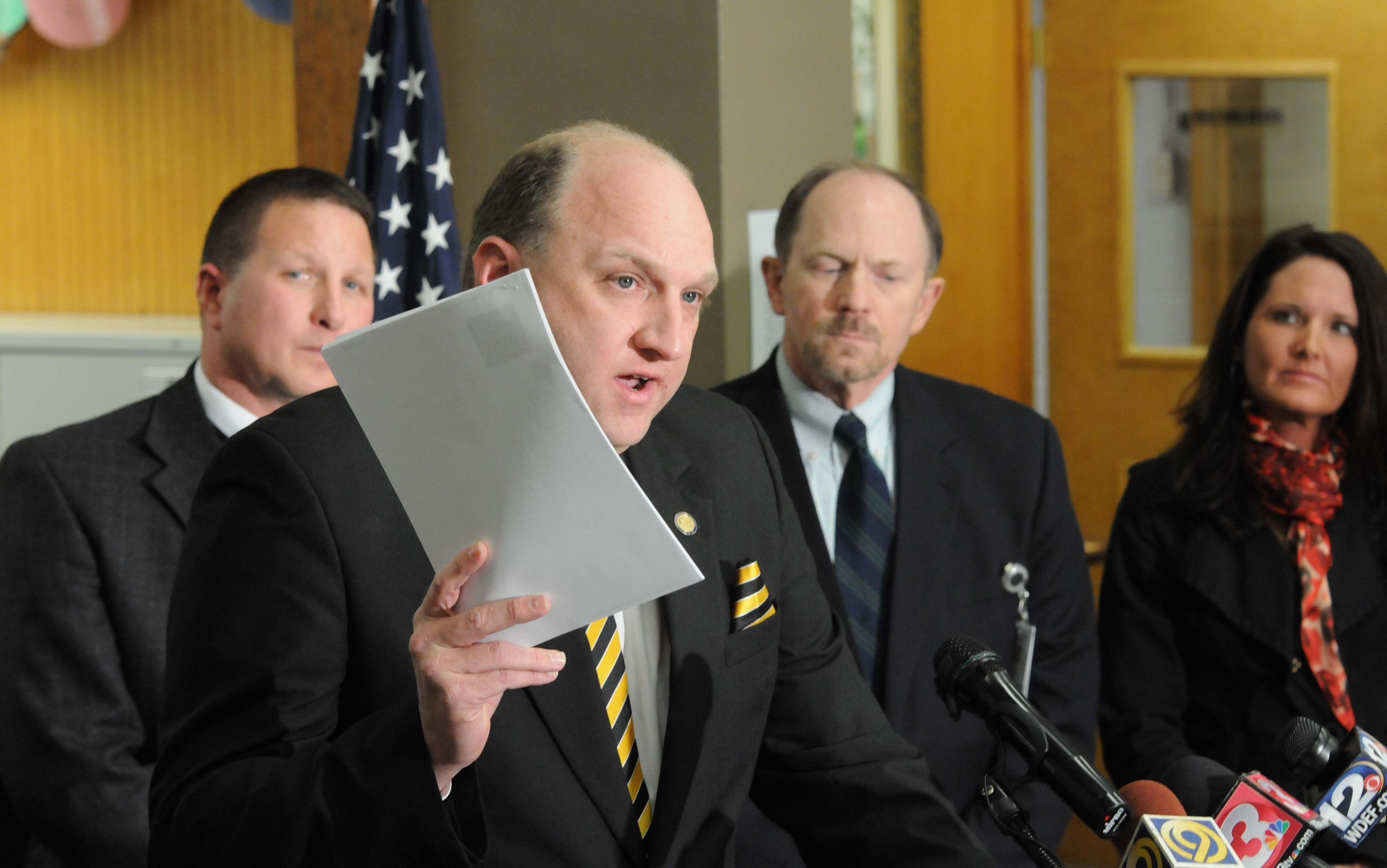Read a related storyTennessee legislators ramp up efforts to arm educators
CLEVELAND, Tenn. - Cleveland education officials have expressed ambivalence toward proposed legislation - championed by Rep. Eric Watson, R-Cleveland - that would give Tennessee school districts the option to allow eligible educators to carry concealed weapons on school grounds.
On Monday, Cleveland Police Chief Wes Snyder and the Cleveland City School Board discussed, in general terms, existing and future security initiatives for protecting city schools. While several officials praised the relationship among school administrators, student populations and school resource officers, few voiced enthusiasm for the idea of allowing armed teachers in classrooms.
"I think it's idiotic myself, but what do I know?" asked school board member Richard Shaw. "There's a big difference between having a firearm and shooting somebody."
"I think we've kind of all unanimously decided it's more dangerous -- in my opinion -- to put a gun in a school rather than protect the perimeter better," said school board member Steve Morgan.
Snyder urged careful research and thoughtful discussion of the issue by the Cleveland School Board. He cautioned against "serious knee-jerk decisions" made in the wake of a news conference given by Watson earlier in the day.
"In the big picture, there's a tremendous amount of obligation on any school system," said Snyder. "If this is something you want to entertain I would suggest extensive, extensive study and discussions on it."
Several board members expressed doubt that any required training for a teacher to carry a concealed weapon under Watson's bill could match the skill and expertise of police officers who serve as school resource officers.
In response to board queries regarding the capabilities of the resource officers, Snyder replied that all of the officers had at least five years of experience, and many of them had served 10 or more years. All had training in crisis handling and hostage negotiation.
The board depends on Snyder and the school resource officers for advice how best to protect schools, said school board member Dawn Robinson.
School resource officer surveys have proven key in maximizing campus security, said Dr. Martin Ringstaff, director of Cleveland Schools. He said about 80 percent of security issues could be addressed through better training of school staffs; other things, such as building design and access, could not be controlled as easily .
"We need structural changes [in some cases], but we are working on those," said Ringstaff. "We're going to make it happen."

